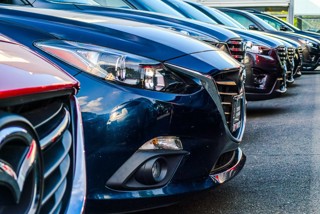What have been the key milestones for you after your first year as chair?
We have focused on three main areas – value for our members, awareness of our organisation and increasing membership to strengthen our reach, expertise and financial capabilities. Overall, we made a lot of progress. Our meetings have delivered real value for our members by focusing on current issues, from legal counsel on the ASA car advertising ruling through to the importance of end-of-contract inspections as personal contract hire (PCH) continues to become a bigger force. We have welcomed new members and seen a huge increase in the awareness of the VRA through campaigning, press activity and social media. The most noteworthy event we organised was our recent 2020 Vision Seminar, which was attended by more than 200 people.
What have been the biggest challenges for the remarketing industry this year?
Early in the year, there was disruption to de-fleet schedules caused by WLTP. Consumer uncertainty fuelled by Brexit resulted in a number of people delaying the decision to purchase their next vehicle, alongside continued consumer confusion over the pros and cons of each fuel type. Also, closer scrutiny from the Financial Conduct Authority (FCA) has caused the remarketing sector to adapt by changing processes. Finally, the industry is still coming to grips with online sales and how to integrate human and digital processes in an true omni-channel environment.
Was the used car market as volatile as expected in 2019?
The market remained reasonably strong, especially considering the headwinds faced throughout the year. What we are seeing now is that pressures on supply, combined with increasing competitiveness in the retail market, are creating further compression on margin retention. Many retailers are attempting to compensate for this by increasing volume turnover and managing costs. Although profitability won’t return early in 2020, there are expectations that once there is more clarity relating to CAFE (corporate average fuel economy), we could see fleets look at renewing their cars and vans.
How is progress coming with creating a centralised service history database?
Slowly. We continue to talk to a number of parties about the data and the technology needed, but there is no solution coming soon. However, we are pretty determined to succeed because we think it will prove extremely useful.
What’s your view on the challenge alternative fuelled vehicles (AFVs) pose to the remarketing industry?
There’s a number of issues that need tackling. At the most basic level, there’s a current lack of understanding – and a resulting nervousness – concerning the longevity of battery performance in the used sector for wholesalers and retailers. Additionally, transporting, handling and repairing AFVs can be more costly and complex due to range and safety requirements. Care and attention must be paid in the defleet process to appropriate charge levels and where repair is required, suitably skilled technicians must be used. Preparing staff with the knowledge and training to sell used AFVs will be critical in 2020.
What are some of the biggest challenges facing the remarketing industry?
There’s no doubt that consumer confidence has been dented by the ongoing economic and political situation. The uncertainty that car buyers have experienced will continue until Brexit is resolved, when and however that happens. In the meantime, retail demand has been impacted, which has affected the need for dealers to replenish stock as regularly as usual, and some businesses have chosen not to change vehicles on normal de-fleet cycles, instead adopting a wait-and-see approach. This will have impacted the volume of fresh stock hitting wholesale channels.
What are the VRA’s key aims for 2020?
We want to do more of the same – engaging meetings, increasing value for members, more new recruits and relevant information.
In addition, we will launch a new programme, in conjunction with the Institute of the Motor Industry (IMI), to support our members in accessing quality training. Initially, this will address safety in mass vehicle processing centres, and handling of electric and hybrid vehicles.




















Login to comment
Comments
No comments have been made yet.